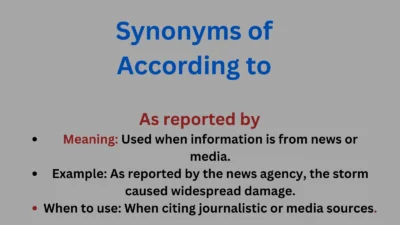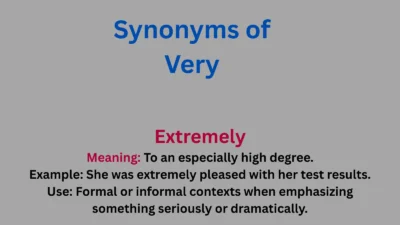The phrase Synonyms of Conducive often pops up when you’re searching for the right words to describe something that supports, encourages, or promotes a result. For example, when we say “a quiet room is conducive to studying,” we mean it’s helpful or favorable for that activity. If you’re writing, teaching, or just expanding your vocabulary, understanding alternatives like favorable, helpful, beneficial, or advantageous can add precision and depth to your expression.
In this post, we’ll explore a range of synonyms for conducive, along with when and how to use each one effectively.
From academic writing to everyday conversations, the right conducive synonym can elevate your message. Let’s dive into the best alternatives and see how they work in real-world contexts
What Does Conducive Mean?
At its core, conducive describes something that helps bring about a particular outcome or condition. Think of it as a friendly environment or factor that makes success more likely or encourages a certain state to develop. For example:
- A quiet room is conducive to studying.
- Positive teamwork is conducive to project success.
Conducive implies a helpful, favorable, or supportive role in a process or situation. It’s often used in formal or neutral contexts but can fit many writing styles.
30 Synonyms of Conducive — When and How to Use The
Here’s a list of 30 synonyms with a quick definition, example, and tips on when to choose each word. Let’s break down the subtle differences to help you pick the best fit.
1. Helpful
Meaning: Provides assistance or support.
Example: The guidebook helped navigate the city.
Use: Great for casual or everyday contexts where something simply assists or makes things easier.
2. Favorable
Meaning: Giving an advantage or positive outcome.
Example: The weather was favorable for the outdoor event.
Use: Formal tone; often about conditions or circumstances aiding success.
3. Advantageous
Meaning: Giving an advantage or benefit.
Example: Learning multiple languages is advantageous in global business.
Use: Formal, especially in professional or academic writing, emphasizing benefit.
4. Beneficial
Meaning: Producing good effects or benefits.
Example: Exercise is beneficial for mental health.
Use: Neutral to positive; ideal when focusing on wellness or improvement.
5. Contributive
Meaning: Helping to bring about a result.
Example: His insights were contributive to the success of the project.
Use: Slightly formal and less common; emphasizes active contribution.
6. Propitious
Meaning: Indicating a good chance of success.
Example: The timing was propitious for launching the product.
Use: Formal and literary; suggests a lucky or favorable moment.
7. Promotive
Meaning: Helping to promote or advance.
Example: A healthy diet is promotive of longevity.
Use: Formal; often in health or policy discussions.
8. Conductive (Not to be confused with conducive!)
Meaning: Allowing heat or electricity to pass through.
Example: Copper is a conductive metal.
Use: Scientific/technical contexts only.
9. Encouraging
Meaning: Giving confidence or hope; fostering progress.
Example: The teacher’s praise was encouraging to the students.
Use: Positive and emotional; good for motivation or morale contexts.
10. Opportune
Meaning: Happening at a favorable or appropriate time.
Example: She arrived at an opportune moment to join the discussion.
Use: Formal; stresses timing rather than overall environment.
11. Helpful
Meaning: Offering help or assistance.
Example: The tutorial video was helpful for beginners.
Use: Casual, straightforward situations.
12. Facilitative
Meaning: Making a process easier or smoother.
Example: The new software is facilitative for remote collaboration.
Use: Formal and technical; often used in organizational or educational settings.
13. Supportive
Meaning: Providing support or encouragement.
Example: A supportive family can ease stressful times.
Use: Emotional or social contexts.
14. Constructive
Meaning: Serving a useful purpose; helpful.
Example: She offered constructive feedback on the draft.
Use: Emphasizes usefulness, especially in criticism or discussion.
15. Conducive
Meaning: Making a certain outcome likely or possible.
Example: Quiet surroundings are conducive to deep thinking.
Use: Neutral, formal, versatile.
16. Suitable
Meaning: Appropriate or fitting for a purpose.
Example: This room is suitable for hosting meetings.
Use: Neutral, practical.
17. Beneficent
Meaning: Doing good or causing good to be done.
Example: The beneficent policies improved public health.
Use: Formal, often moral or ethical contexts.
18. Helpful
Meaning: Giving assistance or aid.
Example: The advice was helpful during the interview.
Use: Every day, simple.
19. Fruitful
Meaning: Producing good results or benefits.
Example: Their discussion was fruitful and led to new ideas.
Use: Positive, often intellectual or creative contexts.
20. Salutary
Meaning: Producing good effects, often after hardship.
Example: The failure was a salutary lesson.
Use: Formal, slightly old-fashioned; often in moral or health lessons.
21. Conducible
Meaning: Capable of leading to a result.
Example: These conditions are conducive to growth.
Use: Rare, formal; interchangeable with conducive.
22. Helpful
Meaning: Assisting.
Example: The tips were helpful for exam preparation.
Use: Informal, daily language.
23. Advantageous
Meaning: Giving an advantage.
Example: Remote work is advantageous for work-life balance.
Use: Professional or formal.
24. Helpful
Meaning: Aiding or assisting.
Example: The guide helped understand the system.
Use: Very casual.
25. Favorable
Meaning: Giving a positive result.
Example: Favorable reviews boosted the film’s popularity.
Use: Formal, evaluative.
26. Encouraging
Meaning: Offering hope or confidence.
Example: Early results were encouraging for the researchers.
Use: Positive, hopeful tone.
27. Promoting
Meaning: Supporting the progress or growth of something.
Example: Healthy eating promotes overall wellness.
Use: Active, dynamic.
28. Good
Meaning: Having positive qualities.
Example: Good lighting is conducive to a pleasant atmosphere.
Use: Informal, broad.
29. Constructive
Meaning: Helpful in improving or building something.
Example: Constructive criticism helps refine skills.
Use: Positive, practical.
30. Contributive
Meaning: Playing a part in causing a result.
Example: Her dedication was contributive to the team’s success.
Use: Formal, less common.
How to Choose the Right Synonym
- Tone & Formality:
- For formal writing, opt for words like advantageous, propitious, salutary, or contributive.
- For casual conversations, helpful, good, or supportive work best.
- For formal writing, opt for words like advantageous, propitious, salutary, or contributive.
- Context:
- Use favorable or opportune when discussing conditions or timing.
- Choose constructive or encouraging when referring to feedback or motivation.
- Pick beneficial or promotive for health, growth, or wellness contexts.
- Use favorable or opportune when discussing conditions or timing.
- Emotional Tone:
- For a warm or empathetic tone, supportive or encouraging shine.
- For intellectual or analytical writing, fruitful or conducive may fit better.
- For a warm or empathetic tone, supportive or encouraging shine.
- Cultural Nuances:
- Some synonyms, like propitious or salutary, feel more traditional or literary and might be favored in academic or classic literature settings.
- Helpful or good are universal but less precise.
- Some synonyms, like propitious or salutary, feel more traditional or literary and might be favored in academic or classic literature settings.
Conclusion
Choosing the right synonym for conducive can make your communication clearer, more engaging, and better suited to your audience. Whether you’re aiming for a formal tone with words like advantageous or a casual one with terms like helpful or good for, each alternative brings its nuance.
By understanding when and how to use these synonyms, you can more effectively convey support, encouragement, or favorable conditions in any context.
Keep experimenting with these words to enhance both your writing and speaking skills.




